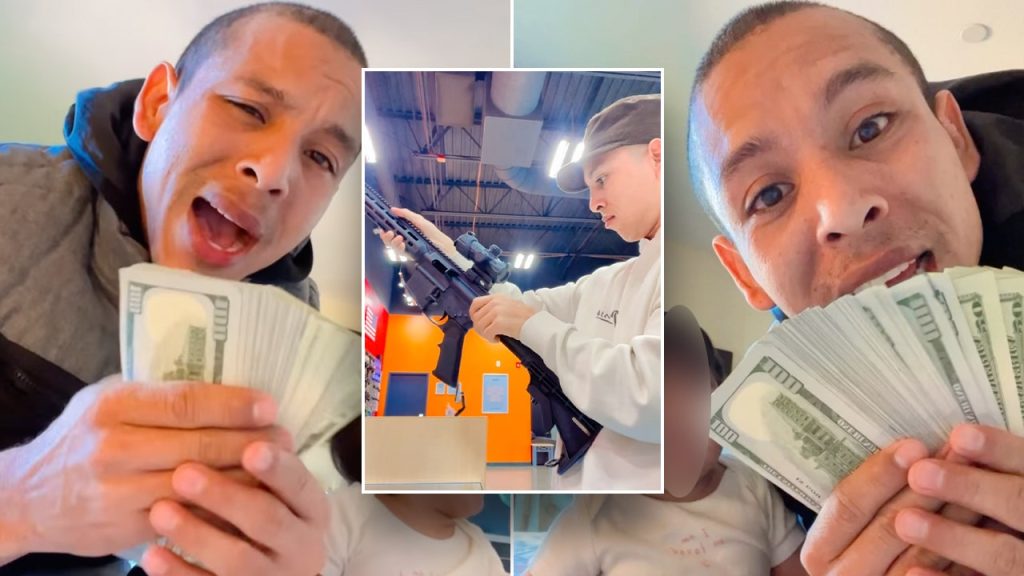Leonel Moreno, a Venezuelan “migrant influencer,” who entered the U.S. illegally, was arrested near Columbus, Ohio for failing to appear for required check-ins with officers. He spoke to The New York Post during a televisit from inside Geauga County Jail and complained that he came to the U.S. due to persecution in his country but feels he is facing the same treatment now. Moreno insisted that he was a good father, husband, and son and misses his freedom. He crossed into the U.S. illegally in 2022 and received border parole as part of the government’s Alternatives to Detention program. Federal documents now suggest he may be facing federal firearm charges as well.
Moreno made headlines for his inflammatory TikTok videos where he bragged about not having to work and mocked migrants who come to the U.S. to work hard manual jobs. His videos were banned, but his Instagram account was still active. In his posts, he acknowledged the closure of his TikTok account but vowed to continue earning money on Facebook and Instagram. Moreno had told his audience that he planned to make a business out of invading abandoned houses, taking them over with squatters’ rights laws, and selling them for a profit. Despite his online persona, Moreno insisted in his interview with The Post that the person on his social media posts was just a “character” and should not be conflated with his normal self.
The squatter trend in the U.S. is evolving as migrants coach others on how to exploit laws. Moreno’s TikTok account had over 500,000 followers before it was banned, and his Instagram account still had nearly 19,000 followers. He had boasted about marking his territory in the U.S. rather than working like a slave, and he encouraged others to follow in his footsteps. Moreno’s situation highlights the growing concern of illegal squatting and its impact on homeowners and the community. Experts warn that the damage may already be done as migrants continue to exploit loopholes in the system.
While speaking to The Post from jail, Moreno continued to claim that he was being unfairly portrayed in the media and that he missed his freedom. He insisted that his social media posts were just a performance and did not reflect his true self. Moreno revealed that he had a sarcastic and dark humor and that his online persona was simply a character he created for entertainment purposes. Despite his current legal troubles, Moreno remains defiant and appears determined to continue his questionable practices even while behind bars, vowing to find ways to earn money through other social media platforms.
Overall, Moreno’s case sheds light on the complex issues surrounding illegal migration, squatting, and the exploitation of laws for personal gain. His actions on social media have sparked controversy and highlighted the blurred lines between reality and online personas. As authorities continue to investigate his case, it remains to be seen how his story will unfold and what impact it will have on the ongoing debates surrounding immigration and property rights in the U.S. In the meantime, experts and officials are working to address the loopholes that allow individuals like Moreno to take advantage of the system, in order to protect homeowners and uphold the integrity of U.S. laws.


